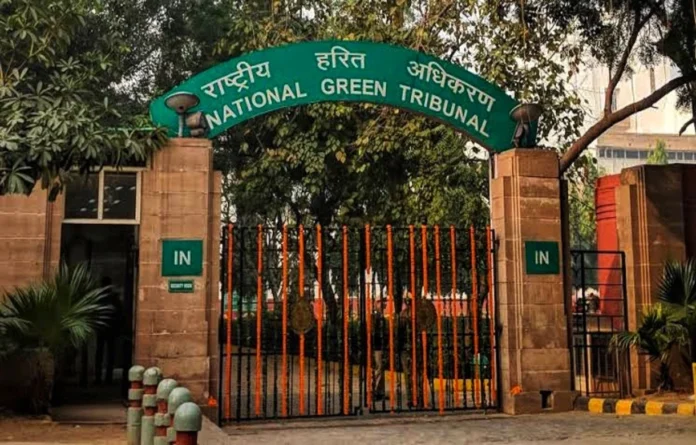The National Green Tribunal (NGT) has imposed a cost of Rs 10,000 upon the State of Kerala for not filing the response/report on time.
The Principal Bench of Justice Prakash Shrivastava, Justice Arun Kumar Tyagi and Dr. A. Senthil Vel considered the issue of protection of Ashtamudi Wetland and Vambanad-kol Wetland which are the Ramsar sites.
In one connected matter the Tribunal is also considering the issue of microplastic pollution in Ashtamudi Lake in Kerala.
In terms of the previous direction, CPCB has filed the report dated 11.09.2024 reflecting the condition of the lake as under: “xxx ……………………………………xxx……………………………..xxx
6. ……. monitoring of microplastics in ambient air. groundwater and surface water bodies was carried out in Chennai by a Joint committee consisting of members from Anna TJniversity. Chennai. Central Pollution Control Board (CPCB). Regiona] Directorate – Chennai & Tamil Nadu Pollution Control Board (hereinafter referred as TNPCB). Chennai. The report of Joint Commitee has indicated significant levels of microplastic contamination at the Kodungaiyur and Perungudi dumpsites. with microplastics detected in leachate. canal water, and groundwater. Airborne microplastics were also found at notable levels at both sites……
xxx ……………………………………xxx……………………………..xxx
8. That it is humbly submitted that in compliance of Hon’ble NGT’s order as mentioned above CPCB had filed a report dated 10.02.2023. The report highlights widespread Microplastics contamination across environments and organisms. Microplastics enters water primarily through sewage, wastewater, and surface runoff, persisting due to inadequate filtration in treatment systems and contributions from plastic infrastructure. Microplastic is also prevalent in bottled water. Airborne Microplastic poses inhalation risks in urban settings, while soil contamination occurs via plastic films and waste. Microplastic has been found in human biological samples, suggesting potential health impacts from ingestion and inhalation routes. However, presently there are no studies on the impacts of ingested microplastics on human health. Submitted report is enclosed at Annexure-II. In compliance of Hon’ble NGT directions rendered vide order dated 01.03.2023 in OA 251/2022, MoEF&CC has prepared an action plan, specifying activities related to microplastics to be taken up by CPCB….
xxx ……………………………………xxx……………………………..xxx
11. That it is humbly submitted that CPCB vide its letter dated 1st May, 2024 communicated to the States having Ramsar Sites including Kerala SPCB wherein it was informed that water quality data during the year 2023 of Ramsar sites at 04 locations at Ashtamudi Lake was non-complying with respect to Primary Water Quality Criteria for Bathing. notified under The Environment (Protection) Rules. 1986…… Vide afore-said letter dated 01 .05.2024. CPCB also requested the States to identify the sources of pollution specially at the non-complying locations and to take necessary measures for improvement of water quality of Ramsar sites and submit the action taken report to CPCB……”
From the above report, the Bench noted that a significant level of microplastic contamination has been found and the source of the same is primarily through sewage wastewater and surface runoff due to inadequate filtration in the treatment system and that the Ramsar site at four locations at Ashtamudi Lake in the year 2023 was not complying for primary water quality criteria for bathing notified under the Environment (Protection) Act, 1986.
A separate report by Kerala State Pollution Control Board has also been filed.
“No report by the State of Kerala during the working hours of the previous working day of the Tribunal was filed. Counsel for the State of Kerala submits that the report has been filed yesterday evening. Since the report has been filed belatedly, it has not come on record. Hence, we impose the cost of Rs 10,000 upon the State of Kerala for not filing the response/report on time,” the Court ordered and listed the matter on 06.01.2025.


